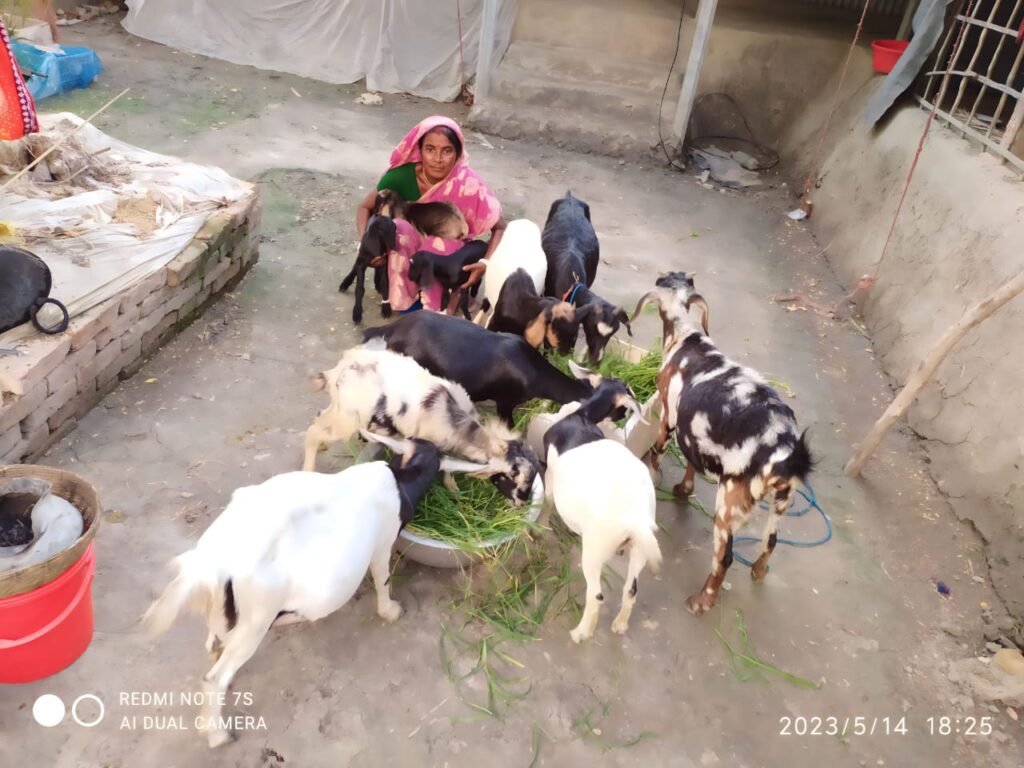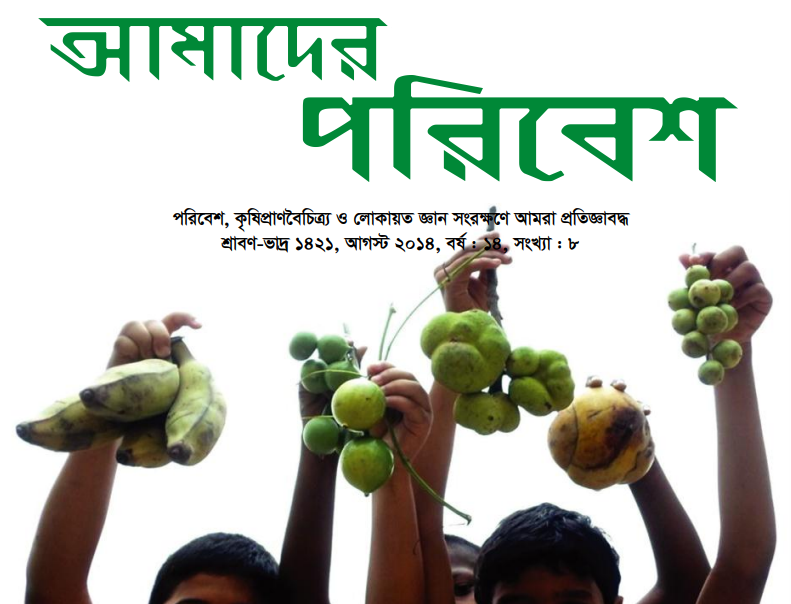By Mohiranjan Mondal, Field Facilitator, PORIBESH project, BARCIK-Shyamnagar Resource Centre, Satkhira
Often we talk a lot about goats and seeds’ impact on a person’s life; especially those who are living in extreme poverty in places like Bangladesh.
Although, goat often considered inferior to other livestock, goats and seeds are valuable to rural women with limited resources because they help to increase food security and reduce poverty. Goats have been part of rural livelihoods for millennia and instrumental in poverty reduction for resource poor communities in rural areas of Bangladesh as goat requires relatively low initial investment, begins yielding returns in a short time. Even under extreme climate conditions, goats have several characteristics that enable their capacity to convert feed into milk and meat. Similarly, seeds provide food sovereignty and enhance the flourishing greens.
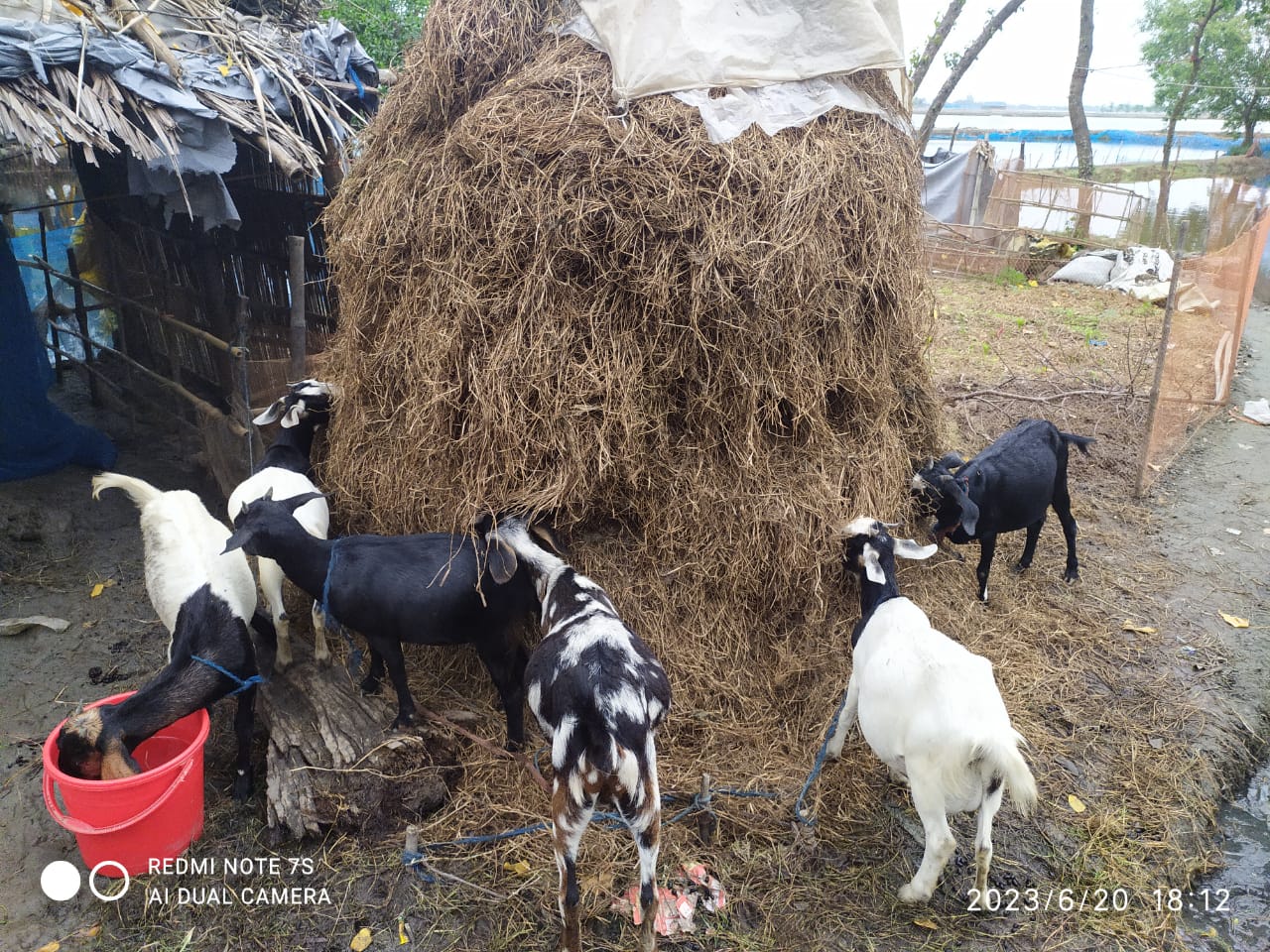
Kusum Rani (43) is among the poorest of the poor in her community in south-western coastal region of Jhapa village of Padmapukur island union under Shyamnagar upazila of Satkhira district. For her, every single day is a struggle. Growing up, she barely had enough food to eat or a better shelter to sleep and she even did not have opportunity to go to school. Life after childhood only became more difficult for Kusum. Like many young girls whose parents can’t afford to care for their children anymore, Kusum was married off by the time when she was just 15 years old. Her family consists of her husband, Bonkim Raptan (54), her 27 year’s old married son and his wife. Her husband works in shrimp enclosure as a seasonal day laborer and could hardly manage job only for three months in a year. His income is too small to make ends meet. Kusum Rani’s four members’ family have been passing life without a hope.
Soon after Amphan an extremely powerful tropical cyclone in 2020, Kusum heard about the BARCIK-PORIBESH project which is supported by NETZ partnership for Development and Justice. The project has been working for the poorest climate vulnerable families in her community. By involving in the CSO called Golap at her village, she learned how something very simple as a goat and seeds given to women just like her-the helpless, the poor, the hungry and the unprivileged-can help them as a second chance. Kusum was convinced and took the opportunity to get her life back on track.
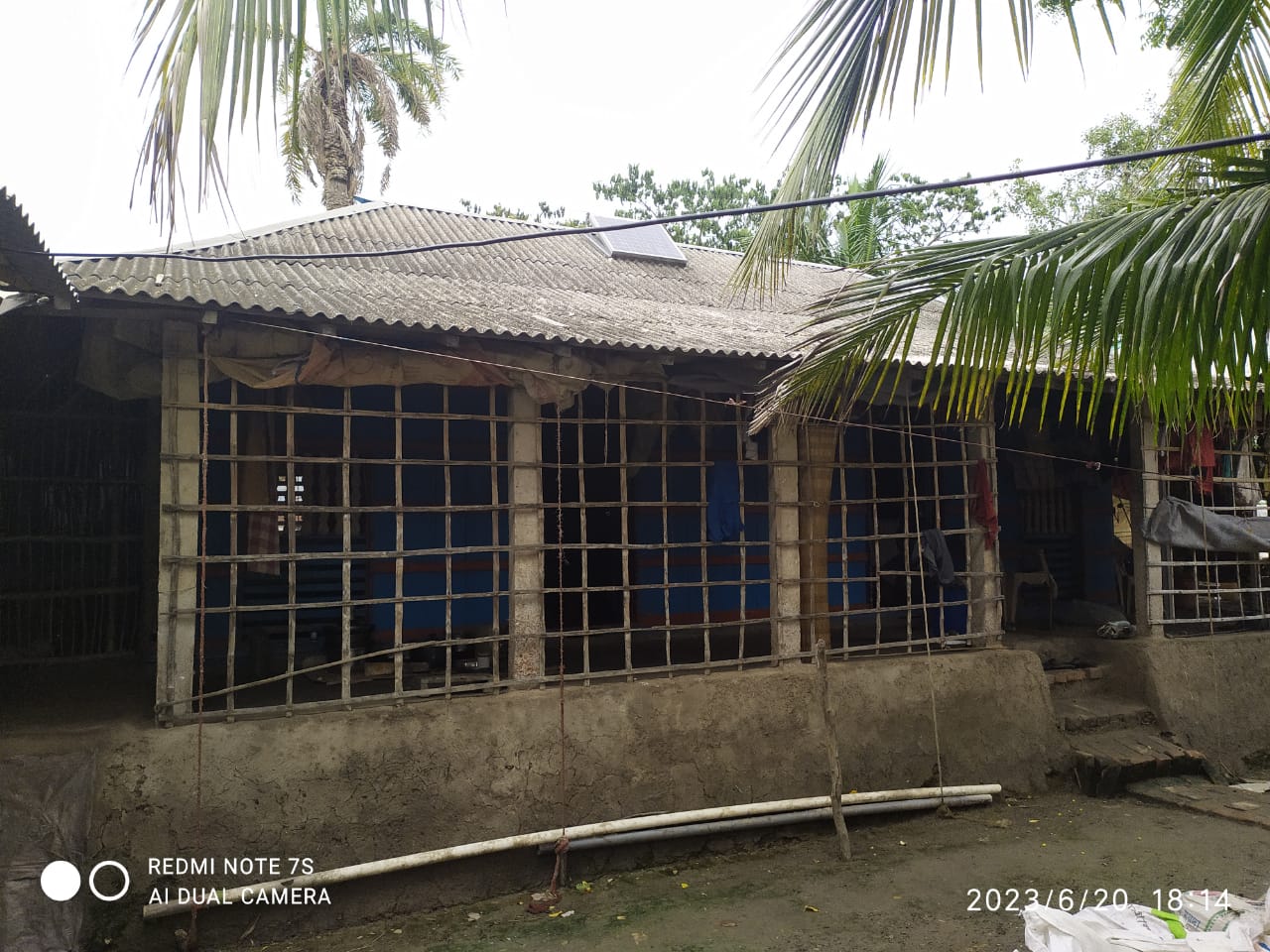
At the very beginning, Kusum received training on Climate Resilient Agriculture in 2022. Soon after she received 3 goats, 2 chicken, 2 ducks and some seeds as productive assets worth BDT 12,800 and especially goats gave Kusum the start that she needed to help her family. As a result of the training Kusum gained and honed her skills which was reflected in the increased strength of goats in her possession and consisted of 10 bucks are being reared by her. This has proven to be an important source of livelihood for her family. As a small holder, sowing seeds at homestead, produce with livestock manure, this is a peerless example of safe vegetable farming and her continuous effort is underway. She hopes goat farming to be taken up as business, income from goatery she plans to mend her house that was partly broken by Amphan.
Goat rearing allows her to earn a stable income, saves money, and eventually is able to purchase more goats and homestead farming provides her family’s fresh food. Furthermore, home grown seed allows her access to grow crops that she likes. For the first time in her life, Kusum is able to provide support for herself and her family. More than that, she now has a sense of worth and dignity that she has never known before.
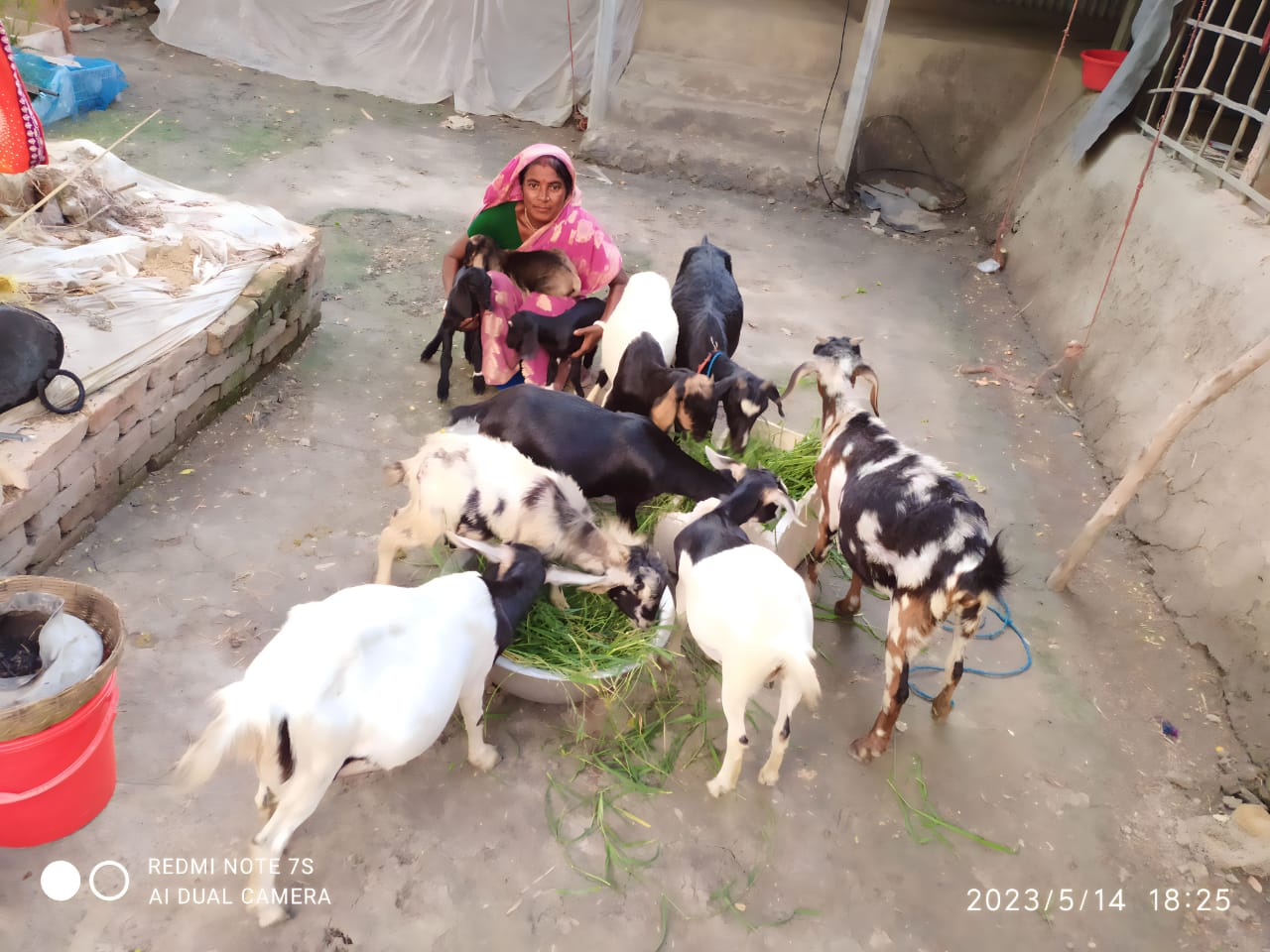
PORIBESH project hopes to improve livelihoods with goats and seeds and at the same time take things a step further by sharing best practices such as care techniques of live-stocks and exchanging seeds to ensure sustainability. BARCIK with the support from NETZ-Bangladesh is committed to its continuous effort with its underlying objectives for livelihood improvement, social and economic empowerment of climate victim people and their future generations in south-western coastal areas of Bangladesh.
Translated By
ABM Touhidul Alam

